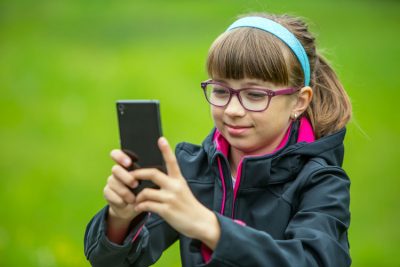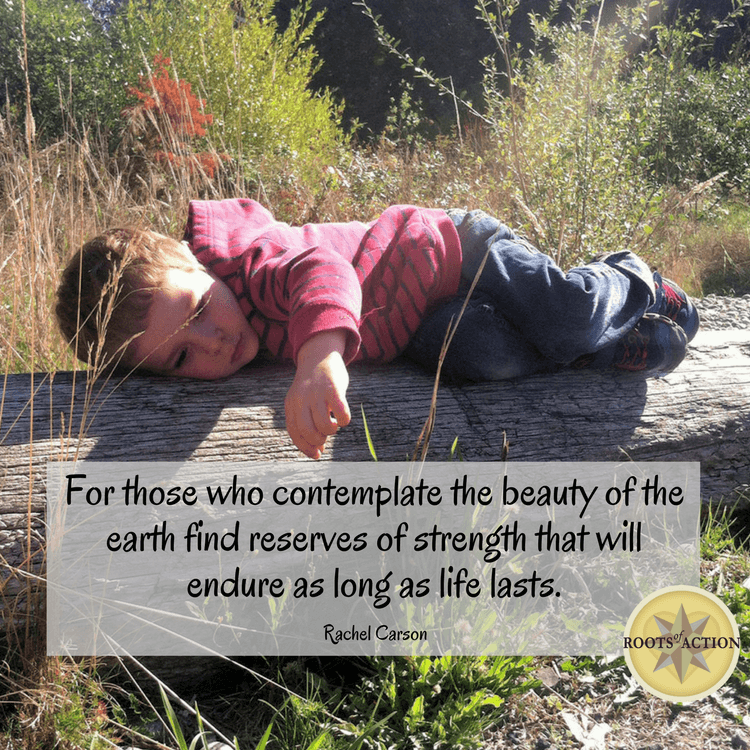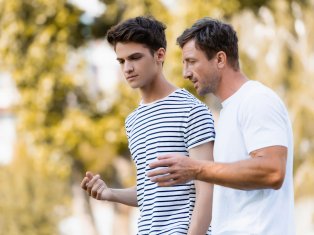
Do you have green spaces within walking, driving, or public transport distance from your home? If you’re looking for positive ways to feel connected as a family, it’s time to get yourselves and your kids outdoors—into green spaces, parks, beaches, forests, backyards, and neighborhoods!
The latest research is compelling about how all those green spaces and natural habitats can contribute to the mental health and well-being of families. And just in case your family members are attached at the hip to their mobile devices, this article shows how you and your children can bond with nature and your beloved devices simultaneously!
I don’t normally recommend products in my articles, other than personally-reviewed books. In fact, I have an unwritten policy against it, as I receive many requests to market toys, games, services, and other products to families that have nothing to do with raising healthy children. But this product is different because it supports the research on positive youth development and focuses on topics I’ve written about many times, including children and nature, self-awareness, and curiosity.
I’d like to introduce you to a new mobile app for families, called Nature Passport. The app is free and was produced jointly by two nature-focused nonprofits, IslandWood, in Washington State, and Nature Play Western Australia. While the app is already packed with nature activities for kids, additional features can be unlocked for $.99, including cloud data sync and access to “field guide,” a service from iNaturalist.
Why would your family want to use an app like Nature Passport to nurture a connection to the outdoors? Why would teachers use Nature Passport as a tool to support their students’ learning? (Yes, the mobile app has classroom applications for teachers too!)
Let’s draw on research to answer these questions.
Importance of Nature in Child Development
In his book, Last Child in the Woods (2005), Richard Louv summarized much of the research on the importance of nature in child development and signaled an alarm that today’s fading relationship with nature would have negative health effects on young children. He called the effect “nature-deficit disorder.” Since then, many studies have confirmed Louv’s predictions and emphasized the need for more green spaces, parks, and opportunities for children to connect to the outdoors.
In a 2014 study, researchers Zelenski & Nisbet discovered a link between nature and happiness that was distinct from other psychological feelings, including feelings of connectedness to family, friends, and home. They called this concept nature relatedness. They also learned that this distinct connection to nature often predicts happiness and contributes to the development of sustainable attitudes—an important mindset to preserving our environment.
In a recent literature review on the public health benefits of exposure to urban green spaces and natural environments, Van den Bosch & Sang (2017) determined there was an abundance of evidence that linked nature to positive mental health. Each day, we see additional evidence that nature is vitally important to child development—and to human development.
Benefits of Collaborative Learning
Collaboration is about working together as a team toward a common goal. It is a highly valued skill in workplaces because collaboration leads to creativity and innovation. When collaborative learning becomes an integral part of families and classrooms, it deepens kids’ knowledge and fosters sociability, one of the eight core attributes of The Compass Advantage framework for positive youth development. One way families learn together with love and respect is by engaging children in collaborative learning.
Unlike many mobile apps that entertain children and take them away from others, the Nature Passport is designed for collaborative learning. Rather than sending kids and their mobile devices into green spaces alone (although older kids can use it by themselves), it was created to guide families through outdoor learning and exploration together. It’s centered around the power of collaborative game-based learning, a tool that has been shown by research to improve kids’ performance, attitudes, motivation, self-efficacy, and achievements (Sung & Hwang, 2013).
Everyone in your family can take turns leading activities through Nature Passport and everyone, even young children, can use built-in widgets, like camera, audio, recorder, counter, and stopwatch.
Green Spaces Invite Imagination and Play
There are few things more important to positive child development than imagination and play. Through play, children learn to use their creativity and inventiveness. They practice being social creatures—collaborative, cooperative, and fair.
Today, kids spend an average of six hours daily on their digital devices, much of which would be considered “play.” Yet not all play is created equal. Play should encourage creativity, strengthen relationships, provide stress relief, and foster empathy. Connecting with nature in collaboration with families or classmates fully realizes the potential of play.
Digital devices themselves are not the cause of declining rates of mental health in today’s children. While we know they likely play a role, we also know that the healthy use of digital devices enhances children’s love of learning. It’s how devices are used, and how children learn to balance “green time” with “screen time.”
More about Nature Passport
Returning to the questions at the beginning of this article: Why would your family want to use an app like Nature Passport to nurture a connection to the outdoors? Why would teachers use Nature Passport as a tool to support their student’s learning?
If the research alone isn’t enough encouragement to give this app a try, here is an insight from the Nature Passport website that caught my eye:
“Nature Passport is designed to jump start an outdoor experience. But don’t be surprised if the fun of being out in nature together takes over. When it does, don’t hesitate to put your phone away and enjoy some device-free time.”
Ah, device-free time in nature? If an app can spark a child’s wonder and imagination in the outdoors, then Rachel Carson’s quote “For those who contemplate the beauty of the earth find reserves of strength that will endure as long as life lasts,” has a chance to become reality for millions of children.
A robust tool for families and classrooms, the activities in Nature Passport are designed by experts in experiential education and outdoor play. And the best part, new content is released every two weeks! So kids and adults can look forward to new, engaging activities together!
I encourage you to learn more about this new tool to spark a child’s connection to nature, build skills in collaborative learning, boost child development, and discover those green spaces on earth that invite imagination, creativity, and contemplation of beauty!
Caution: Be ready to explore your own nature relatedness! I downloaded the app today and already earned my first “badge.” I’m looking forward to exploring the outdoors with my grandchildren!
References
Louv, R. 2005, 2008. Last Child in the Woods, New York City, NY: Algonquin Books.
Sung, H.-Y., & Hwang, G.-J. (2013). A collaborative game-based learning approach to improving students’ learning performance in science courses. Computers & Education, 63 (Supplement C), 43-51. doi: https://doi.org/10.1016/j.compedu.2012.11.019
Van den Bosch, M., & Ode Sang, Å. (2017). Urban natural environments as nature-based solutions for improved public health – A systematic review of reviews. Environmental Research, 158 (Supplement C), 373-384. doi: https://doi.org/10.1016/j.envres.2017.05.040
Zelenski, J. M., & Nisbet, E. K. (2014). Happiness and Feeling Connected: The Distinct Role of Nature Relatedness. Environment and Behavior, 46(1), 3-23.
Published: November 27, 2017




